|
Mike Fischer, MD, MS, Director of NaRCAD | January 2017 Director's Letter Tags: Conference, Director's Letter, Training Growth. Support. Engagement. These words characterized 2016 for NaRCAD, and have us planning for an exciting 2017. In 2016, we had our most successful and impactful year to date. Our community has grown to over 1000 national and international supporters of clinical outreach education.  At #NaRCAD2016, our 4th annual conference on academic detailing, the agenda reflected what’s happening in the field, composed largely of ideas and presentations submitted by you, the members of our network. Keep your eyes open for our Call for Presentations on our NaRCAD Conference Series page— #NaRCAD2017 will be held here in Boston on November 6th & 7th, 2017 and applications for presentations will be accepted starting March 1st. After this past year’s success, we’re even more committed to providing customized support to individuals, groups, and large organizations working on clinical outreach education.  In addition to our core training sessions in Boston (our next session is March 30th & 31st), we’re continuing to offer on-site topic-specific trainings, customized workshops, and special educational sessions on the principles and practice of AD. In addition to providing direct support, we’ve been excited to successfully connect people and programs with each other, allowing for the exchange of ideas and best practices among both national and international experts. We’re proud of our ability to meet our partners where they are, whether they’re starting, expanding, or adapting AD interventions, and this year, we’re looking forward to supporting and improving your work.  We started this process by sending you our first annual community survey in December, and we thank our many members who responded. (You can still weigh in if you have thoughts, although our raffle is over!) We’ve listened to your insightful suggestions, and we’re already taking action to support your needs. This year, we’ll be launching the new COrE (Clinical Outreach Education) Series, exploring AD program development, specific clinical content, and other topics you’ve suggested. Featuring AD experts, the NaRCAD team, and using both interview and live webinar formats, the COrE Series is a great opportunity for advanced learning, support, and collaboration. Stay tuned for more information! We’ll also be increasing engagement opportunities via our Partner Network; we’ll be reaching out individually to learn more about your current work, and we’ll offer an interactive site where you can make your own partner connections with experts working on similar topics. As we grow even more in the coming year, your ideas and reflections remain invaluable. You don’t have to wait for us to contact you! We invite you to be in touch with our team and tell us more about your program—what challenges you’ve faced, what successes you’ve experienced, best practices you’d like to share, programs you’d like to know more about, and the resources you need to help you succeed. -Mike  Biography. Michael Fischer, MD, MS, NaRCAD Director Dr. Fischer is a general internist, pharmacoepidemiologist, and health services researcher. He is an Associate Professor of Medicine at Harvard and a clinically active primary care physician and educator at Brigham & Women’s Hospital. With extensive experience in designing and evaluating interventions to improve medication use, he has published numerous studies demonstrating potential gains from improved prescribing. Read more.
0 Comments
Bevin K. Shagoury, Communications & Education Director
Tags: Conference As we reflect on the successes and growth of NaRCAD in 2016, especially last month's terrific 4th International Conference on Academic Detailing in Boston, we give thanks to our community of supporters of clinical outreach education! We're nearing 1,000 network subscribers who regularly read our blogs, newsletters, and attend our events, and we're appreciative of all of your hard work, feedback, and contributions to NaRCAD, making our resource center and partner network stronger with each year. Thank you to all who have completed our 1st Annual Community Survey, providing us with valuable feedback on our services and resources. We're excited to find new ways we can continue to support your work, and we're always eager to read your feedback year round, so drop us a line if there's anything we can do to help you strengthen your AD programming. What do you have planned for 2017, and how can we help you increase your impact? As we prepare for 2017, we're looking forward to continued innovation and success in the field of AD. Stay tuned--we'll kick off the new year with a special director's letter from Director Mike Fischer in our January Edition of Academic Detailing Today. And don't forget, our Spring 2017 AD Techniques Training will be held in Boston on March 30th & 31st, and registration opens January 1st. Thanks for a wonderful 2016! The NaRCAD Team Director’s Letter: Fall 2016 | Mike Fischer, MD, MS, Director of NaRCAD Tags: Conference, Detailing Visits, Director's Letter, Training When the leaves start to turn here in Boston, we know it’s almost time for NaRCAD’s International Conference on Academic Detailing. This year’s 4th annual conference features several new and exciting sessions we’re excited to share with our community. #NaRCAD2016 highlights the work of innovators in academic detailing from many locations and organizations, ranging from large national health systems to small independent programs. 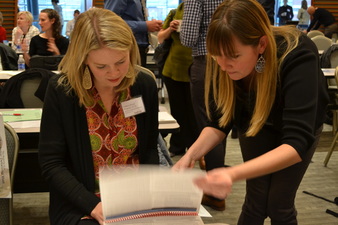 Diverse clinical topics will be featured at our interactive sessions, including pediatric developmental screening, smoking cessation in patients with serious mental illness, opioid misuse and overuse, screening for ADHD, and many others. Breakout sessions offer attendees a chance to work closely with leaders in the field, featuring in-depth and hands-on exploration of specific elements of academic detailing. Whether your focus is on training detailers, preparing clinical topic materials, or program evaluation, our dynamic breakout sessions offer a chance to network and acquire new skills. 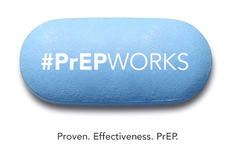 Our conference is our largest event of the year, but our team has been busy this fall with other activities. At our Boston-based training in September we welcomed trainees from organizations across the country, all of whom concentrated on learning the techniques of academic detailing. We also spent two days this fall in San Francisco, working with the city’s Department of Public Health on an intervention to increase the use of pre-exposure prophylaxis (PrEP) for patients at risk of contracting HIV. We’re excited to continue supporting our partners at the SFDPH as they move forward on this important initiative.  Come join us at #NaRCAD2016! There’s only a month left to register, and space is limited. Check out our conference hub archival page to see what previous events were like, including on-demand video and program highlights. We’re excited that clinical outreach education has been such an effective strategy to address the pressing problems facing patients, clinicians, and health systems. This year, we know that the opportunity to learn, share ideas, and connect with experts will continue to ignite inspiration for our community’s important work in improving quality of care and patient outcomes in 2017 and beyond. 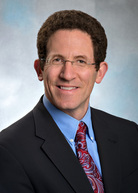 Biography. Michael Fischer, MD, MS | Director, NaRCAD Dr. Fischer is a general internist, pharmacoepidemiologist, and health services researcher. He is an Associate Professor of Medicine at Harvard and a clinically active primary care physician and educator at Brigham & Women’s Hospital. With extensive experience in designing and evaluating interventions to improve medication use, he has published numerous studies demonstrating potential gains from improved prescribing. Read more. 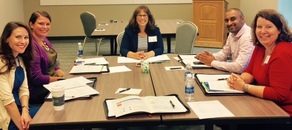 Bevin K. Shagoury, Communications & Education Director Tags: Conference, Training After another terrific 2-day Academic Detailing Training course here in Boston, it's easy to see how each new training class brings its own unique energy and important clinical interventions to the table. On September 19th and 20th, 2016, trainees from nearly every corner of the U.S. map joined us to learn the core, social marketing techniques of successful clinical outreach education.
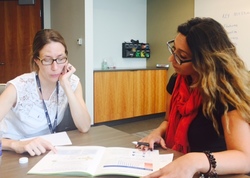 While each training has its own unique group discussions and trainees, our 2-day course always includes presentations on the evidence base and history behind academic detailing, the best ways to evaluate evidence for your intervention, the foundation of behavior change theory for academic detailing, how to use educational materials in an effective way. We lead interactive discussions, group activities, breakout role-plays, and for each training class, we customize a session encouraging the class to use the virtual resources on our Learning Center. 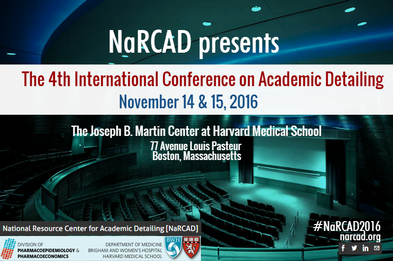 We hope you'll join us at a future training, and please join us for our upcoming conference this November, an exciting opportunity to engage in hands-on workshops, learn about best practices from experts in the field, and meet others doing similarly important work. Stay tuned for an upcoming announcement of dates for our Spring 2017 training course--registration will open in January 2017. Learn more about our amazing staff and facilitator team, and explore our blog's interviews and events recaps to see how NaRCAD supports and highlights health education professional who are using academic detailing to improve health outcomes, one educational visit at a time.  Biography. Bevin Kathleen Shagoury | Communications & Education Director Bevin manages NaRCAD’s external communications, working to magnify the impact of clinical education programs via strategic partnership development, best practices highlighting, and access to virtual learning platforms. Read more. Director's Letter, Summer 2016 Mike Fischer, MD, MS, NaRCAD Director Tags: Conference, Director's Letter, Training Summer is in full swing, but we’re already looking ahead to #NaRCAD2016, our 4th International Conference on Academic Detailing, which we’ll host this fall on November 14th & 15th in Boston. We received a wonderful response to our first-ever call for proposals, with submissions from across the country and around the world, making the 2016 conference our most exciting and community-informed meeting yet. Our team was inspired by the innovative and diverse proposals we received. Following in the footsteps of previous conference series programming, this year’s applications demonstrated a dedication to improving the quality of care and patient outcomes. #NaRCAD2016 applicants showcased success across a broad spectrum of AD interventions: in outpatient and inpatient settings, in public and private systems, and for a wide range of clinical topics. We’re thankful to all who applied for #NaRCAD2016, and we encourage those who are just beginning to roll out an intervention to consider applying for next year’s conference. Along with presentations from our selected applicants, this year’s program will include carefully designed content from leaders in the field, interactive learning sessions, and networking opportunities, including an evening reception. This year will be your chance to learn about cutting edge interventions being implemented across the globe, to share your unique perspective and experiences, and to collaborate with a thriving community of clinical outreach education colleagues. In that spirit of collaboration, we’re always eager to hear from you, the members of our learning network. We can support your AD programming with expert techniques training, materials development, evaluation, or by highlighting your work. We’re also dedicated to personally connecting our network members to one another, working to amplify our community’s knowledge, tools, and impact. Take a minute to tell us what resources you need, to explore our Learning Center, or to join the conversation—either virtually, or in Boston in November.
We’ll see you at #NaRCAD2016—registration is now open, and space is limited! If you have questions, let our team know. -Mike 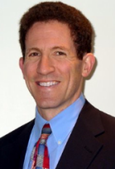 Director's Letter | Mike Fischer, MD, MS Tags: Conference, Director's Letter NaRCAD has jumped right into action in 2016! We’ve been getting out of Boston, working with colleagues across the country in a range of settings. As we’ve partnered with state and local public health agencies, long-term care providers, primary-care networks, and other organizations, we’ve seen how the principles of AD can be adapted to fit the needs of different clinicians and patients. The work of our colleagues teaches us how we can best support clinical outreach education, raise its visibility, and improve health outcomes together.
We want to hear how all of you are tackling these challenges, and we hope you’ll share your successes with us. We’re featuring best practices on our blog and connecting partner organizations, and we know that in-person connection at our annual conference is a highlight for many in our field. As we begin preparing for the 4th International Conference on Academic Detailing, we’re inviting you to submit your work for presentation at NaRCAD 2016. We hope you’ll take advantage of this opportunity to share your successes and challenges—the deadline is approaching fast, so get those submissions in, and feel free to contact the NaRCAD team with any questions about the process. And Save the Date for November 14th & 15th here in Boston—we’d love you to join us at the conference to exchange ideas and strategies with colleagues from across the country and around the world. At NaRCAD, we’re always expanding the range of services we provide, including our core training series on the techniques of AD, specialized workshops and seminars, and consultation on materials development for AD interventions. Let us know what we can do to strengthen your program and highlight your program successes this year.
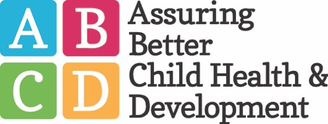 Tags: Autism, CME, Conference, Detailing Visits, Pediatrics, Practice Facilitation, Training NaRCAD: Hi, Meagan and Mindy—thanks for taking the time to talk with us about your clinical outreach education programming at Colorado ABCD. Can you give us an overview about ABCD and its mission to improve child development? Meagan Shallcross: Colorado Assuring Better Child Health & Development (ABCD) works with community partners, pediatric healthcare providers, early learning providers, and families across Colorado communities. The goal is to strengthen systems and identify children with developmental delays, connecting them with community services as early as possible.
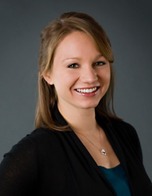 Meagan Shallcross, MPH Meagan Shallcross, MPH NaRCAD: Tell us a bit about your backgrounds. How did you each get into healthcare improvement? Meagan: My background in public health, along with experience working in clinical settings and behavioral science research, developed my interest in healthcare improvement that aims to bridge community work and clinical practice, standardize clinical workflows, and ultimately improve experiences and outcomes for patients and families 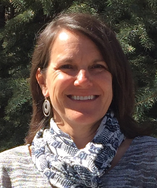 Mindy Craig, PA-C, M.S. Mindy Craig, PA-C, M.S. Mindy Craig: My path to healthcare improvement is a little different than what you might expect. I worked for Northwest Airlines as a flight attendant for several years straight out of college. At that time the airline industry was losing a large amount of money and needed to find a new way of operating. They decided to utilize a Total Quality Management approach and enlisted people from every department to undergo training in TQM and then facilitate small departmental groups in quality efforts. It was through this process that I began to understand the importance of doing business with a quality framework. 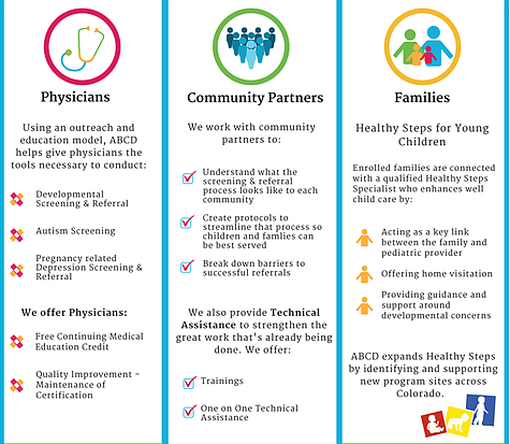 Learn more at coloradoabcd.org. Learn more at coloradoabcd.org. Eventually, I left Northwest and started working in a Neurology clinic while going back to school with the goal of becoming a PA. After completing my degree I worked in primary care settings for about 10 years. I participated in small clinic QI efforts over the years and continued to be interested in quality improvement. I was hired by ABCD 8 years ago to bring a clinical perspective to their physician outreach. It was a natural progression for me to start approaching our work at ABCD with a quality improvement framework. The power of engaging front line staff to implement changes that result in improvement remains as strong as it was when I worked in the airline industry. NaRCAD: Talk with us about your academic detailing programming at ABCD—you’ve been doing this for about 10 years, right? Mindy: We started our work encouraging the use of standardized developmental screening tools in the primary care settings. This was supported by the American Academy of Pediatrics policy statement in 2006 recommending the use of these tools at well child visits. We offered informal outreach to physicians providing instructions on screening tools, billing information, AAP recommendations and information on referral resources. We quickly recognized that screening alone wasn’t sufficient and began talking about the referral process and how to ensure successful referrals were being made. At around this time, research was showing us that only about 50% of children referred for Early Intervention services were actually connecting to that referral. It was easy to identify children with concerns but not as easy to ensure they received needed support. We decided to try formalizing our approach to outreach by offering Continuing Medical Education [CME] credits. While we didn’t change content, offering CME changed the way providers saw us as detailers. We appreciated the new credibility, but still struggled with recruiting new practices. NaRCAD: Recruiting practices to participate is a challenge for many programs. How did this struggle transform into quality improvement?
We now offer Quality Improvement [QI] and MOC projects for implementing developmental screening, autism screening and postpartum depression screening in addition to a project that aims to increase the percentage of children who successfully connect with Early Intervention when referred from their primary care provider. We have been thrilled with the response from physicians for participating in these projects and just received funding to continue and grow our outreach efforts. NaRCAD: What have been some other challenges you’ve faced when going in to talk to clinicians about implementing developmental screening? Mindy: I started working at ABCD unsure of how to provide physician outreach, so I naturally modeled my efforts on the one successful approach I knew very well, which was pharmaceutical sales. As the recipient of pharmaceutical detailing, it was pretty easy to begin my outreach efforts in a similar fashion. I quickly learned how it feels to be a detailer. Front office staff rejected me repeatedly, I made hundreds of phone calls that didn’t get returned, and when I did get to speak to a provider I had to speak quickly and to the point to keep their attention. The challenge of gaining access was the biggest barrier I confronted early on and remains at the top of the list.
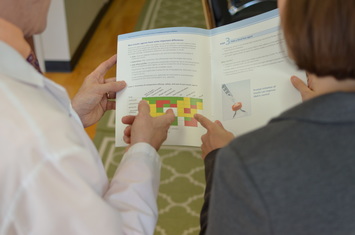 A key challenge: gaining access to clinicians. A key challenge: gaining access to clinicians. NaRCAD: When dealing with those challenges, what’s helped you to build relationships with clinicians in order to gain commitment? Meagan: To deal with the challenges that arise, we have found that it helps to get creative in our approach to gain access to clinicians and add credibility to our messages. A barrier we have encountered when trying to schedule times to meet with clinicians is the expectation that we will provide food. Our funders and budgets do not allow us to pay for food, so we have opted to provide other incentives for clinicians, such as CME or MOC credit. Not only is offering CME/MOC credits an educational incentive for providers, but it lends credibility to our messages. We facilitate our QI projects through multiple meetings at the practice and have found that, by developing relationships and a presence in the office, we can overcome clinicians’ resistance to implementing screening or other changes in their practice.
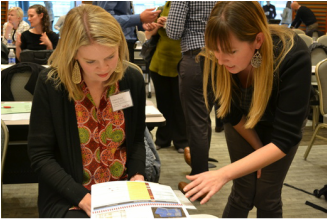 Resource and best practices exchange at #NaRCAD2015 Resource and best practices exchange at #NaRCAD2015 NaRCAD: We were happy to see you at our 3rd International Conference on Academic Detailing here in Boston a few months ago. Tell us more about how the conference helped you think about your work in a different way. Mindy: We were thrilled to be able to attend the conference and came away very energized. We highly recommend the conference to anyone doing similar work. Some of our key “take-aways” were around the fundamentals of academic detailing, including the need for profession materials and repeated visits to develop relationships. We came home committed to find money for developing professional materials and to attend the two-day intensive training offered by NaRCAD.
However, I’ve struggled with our role as a non-profit in meeting these needs. Up to this point, ABCD has utilized a very hands-on approach. We plan meetings, take notes, write up PDSA cycles, make “To Do” lists – anything we can do to make the process easy for the practice and allow the providers to concentrate on patient care. A true practice facilitation model is more concerned with increasing the capacity of the practice to continue quality improvement work after the facilitation had ended. The goal isn’t to do all the work, but to help the practice find capacity to do it themselves. NaRCAD: What other advice would give to a new and emerging AD program that’s just getting started, or that you’d give yourself if you could go back in time 10 years? Meagan: We have found NaRCAD’s training and tips to be very helpful, so we would recommend that new clinical educators attend a NaRCAD techniques training to hone their skills in communicating their messages with clinicians and gaining commitment to behavior change. One of our main takeaways from the NaRCAD conference was the importance of high-quality, professional materials, so we would recommend that new programs budget for the development of professional materials as well as food, which can be an incentive when setting up meetings with clinicians. Over the years, we’ve realized how critical it is to work with community partners before going into healthcare practices to ensure that clinical workflows, such as processes for making referrals to external agencies, are aligned with community-defined processes and so that clinicians are aware of the resources available to patients and families in their communities. NaRCAD: Thanks so much for sharing important insights from your program to improve childhood health outcomes. We look forward to seeing you at a future training and hearing more about your program's future successes! BiographiesMindy Craig, PA-C, M.S., Director of Physician Outreach, has been with the ABCD team for 8 years and brings with her experience in the clinical setting. She earned her physician assistant degree at the University of Colorado Health Science Center’s Child Health Associate/Physician Assistant program in May 2000. Concurrently, she completed additional course work and research to earn her Master of Science degree in Pediatrics. Ms. Craig worked as a physician assistant in a number of settings for ten years prior to joining the ABCD team. Her medical career has included a variety of medical office positions from medical records clerk to practice manager. This range of experience positions her to fully understand the unique dynamics and flow in a typical office, which allows her to deliver technical assistance to practices at a meaningful level.
Ms. Craig’s quality improvement experience began in the business sector where she was extensively trained on Total Quality Management (TQM) at Northwest Airlines. She worked at the airline as a facilitator, training inflight and ground personnel in the principles of quality improvement. This experience with quality continued in the clinical setting, as she has participated in and/or chaired a number of quality improvement projects over her career as a physician assistant. In addition to her work at ABCD, Ms. Craig also does consulting work for organizations needing assistance with physician outreach and education. Meagan Shallcross, MPH, Healthy Steps/Physician Outreach Coordinator, joined the ABCD team in June 2015 as the Healthy Steps and Physician Outreach Coordinator. Meagan is passionate about building systems and environments that support children’s healthy development through clinical-community partnerships and integrated care delivery approaches. Meagan earned a Master of Public Health degree at the University of Michigan, where she supported Patient and Family Centered Care projects at the university health system and was involved with community-based participatory research addressing health equity, as well as research focused on provider-patient communication. Learn more at www.coloradoabcd.org. All photos used with permission. Director's Letter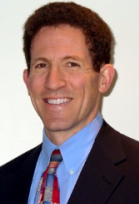 We’ve just celebrated the 5th anniversary of NaRCAD, the only national resource center and network advancing clinical outreach education. We’re also celebrating a terrifically successful 2015. Highlights included running two sold-out academic detailing techniques trainings here in Boston; traveling to San Francisco and Oklahoma City for two customized off-site trainings; and bringing everyone together for #NaRCAD2015: Motivating Change, Transforming Care, our most successful annual conference so far. We’re proud of it all, and more, including the brand-new NaRCAD Website—enjoy and explore a new gateway to academic detailing, including more interactive resources and expanded opportunities for connection, learning, and sharing. With so much to celebrate from 2015, we’re setting the bar high with big goals for the year ahead. Here’s what we’ll be up to in 2016, with you as our partners: Transformative Trainings: Registration for our May training in Boston is open and already filling up fast! We’re also happy to be in high demand for at least 5 “on-the-road” educational sessions and related projects across the US this year. If you want to learn more about the ways we can share our resources and expertise to help your clinical outreach education program grow and succeed, let us know—we’d love to learn about what you’re doing and see how we can help. #NaRCAD2016: Collaborating to Create Change. Our annual conference is the capstone of the year, so mark your calendars for November 14-15, 2016. What’s new this year? #NaRCAD2016 will feature opportunities to submit a proposal to showcase your clinical outreach education experience, data, and insights with the rest of the NaRCAD community. Keep your eyes on your e-mail and our conference page for more details about submission, coming soon. More Collaboration for Improved Health Outcomes: With 5 years of partnerships under our belt, we’re continuing to connect every day with new colleagues working in the field of AD and clinical outreach education. We’re excited to keep expanding our community and creating opportunities for deeper collaboration across programs. We invite you to stay connected as we continue to publish new blogs and interviews, feature partners on our network directory, expand our Learning Center offerings, and recommend evidence-based health news and events on our social media feeds. Most of all, our team wants to hear from you! Drop us a note to tell us what you’re doing, and tell us how we can help strengthen your program and highlight your successes. See you this year! Dr. Mike Fischer 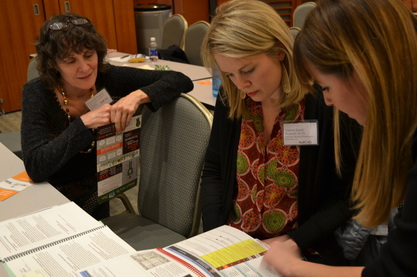 Attendees share resources during a networking break. Attendees share resources during a networking break. Bevin K. Shagoury, NaRCAD Communications Tags: Conference, Detailing Visits, Jerry Avorn, Opioid Safety, Practice Facilitation The excitement and breadth of content in this November’s 3rd International Conference on Academic Detailing exceed what we can capture in this blog post. The combination of exciting speakers, engaging panelists, expert breakout session leaders, and national and international attendees eager to problem-solve created a forward-thinking event that inspired all of us working on AD and related outreach educational activities. As you reflect on our event's highlights, we encourage you to access on-demand video, speaker biographies, session descriptions, and more at our Conference Hub resource page. 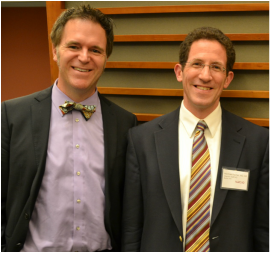 Dr. Coffin of SFDPH and Dr. Fischer of NaRCAD Dr. Coffin of SFDPH and Dr. Fischer of NaRCAD Kicking Day 1 off and setting the tone for the entire event, NaRCAD Director Dr. Mike Fischer warmly welcomed our packed room at Harvard Medical School’s Martin Center by encouraging collaboration, connection, and sharing. Our Day 1 Keynote Speaker Dr. Carolyn Clancy, the CMO of the Veteran’s Health Administration, described the VHA’s work to improve pain management in the veteran population while addressing the challenges of medication abuse and overdose. Dr. Clancy shared strategy and data behind the national effort and the critical role of academic detailing in it, connecting attendees to a big-picture view that can be adopted to look at other health epidemics and interventions. Our first expert panel presented Practice Facilitation in Primary Care. Andy Ellner moderated the session, leading panelists Ann Lefebvre of North Carolina's AHEC Program, Lyndee Knox of LA Net, and Allyson Gottsman of HealthTeamWorks to discuss strategies, contextualize their work in relation to academic detailing and quality improvement, and share their personal approaches to challenges in primary care behavior change. Allyson Gottsman’s much-appreciated analogy that practice facilitation is not unlike “leading a fisherman to a well-stocked pond” resonated with panelists and participants alike. Many attendees who were actively engaged in practice facilitation in their daily work shared that the panel helped them to think about their work in a new way. 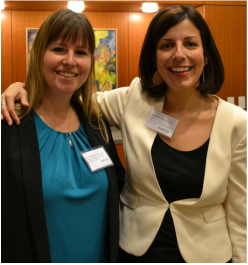 Breakout leaders share a moment during the Day 1 session! Breakout leaders share a moment during the Day 1 session! The afternoon’s breakout sessions offered attendees multiple tracks with AD-related topics to explore: deconstructing and analyzing a 1:1 AD visit, exploring the skills needed to manage an effective AD program, and strategizing on ways to identify and harness stakeholder support when initiating a new program or strengthening an existing one. The afternoon closed with two presentations; the first, by Terryn Naumann of the Canadian Academic Detailing Collaboration (CADC), offered participants a view of the power of synergy and teamwork, the historical context of the CADC’s creation and growth, and the future of the collaboration. 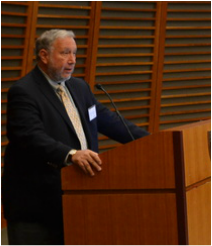 Dr. Avorn gives a presentation one Tweeter called "pure gold" Dr. Avorn gives a presentation one Tweeter called "pure gold" The final presentation of the day was a lively one by NaRCAD’s co-founder and co-director, Dr. Jerry Avorn, who identified major obstacles to effective evidence-based communication in the current landscape of healthcare, and provided a future-centered lens through which attendees could envision how academic detailers can address these challenges. A full day of new ideas and connections culminated in a networking reception that gave attendees a chance to relax and connect socially. Day 2’s morning opened with another engaging Keynote Speaker; Dr. Don Goldmann, CSO & CMO of the Institute for Healthcare Improvement, combined quality improvement theory with personal anecdotes, weaving in real-life examples of successful interventions to provide context and dimension to the theory that underlies all of our work. 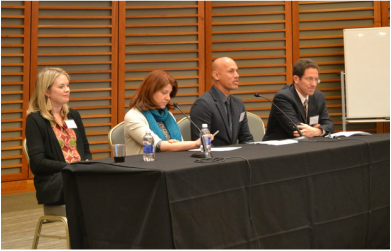 L-R Valerie Royal, Joy Leotsakos, Sameer Awsare, Mike Fischer. L-R Valerie Royal, Joy Leotsakos, Sameer Awsare, Mike Fischer. More examples of successful practice change were illustrated by the morning’s Themed Plenary on the Intersection of Public Health and AD. Dr. Phillip Coffin of the San Francisco Department of Public Health shared the success of an intervention focusing on co-prescribing of naloxone to reverse opioid overdose deaths in San Francisco. Another successful AD intervention was presented by Michael Kharfen of the Washington D.C. Department of Health, who highlighted the successful implementation of AD programs to increase HIV and Hepatitis C screening and treatment. The afternoon featured our second Expert Panel, this time on the role of AD within integrated healthcare systems. Moderated by Dr. Mike Fischer of NaRCAD, panelists Joy Leotsakos of Atrius Health (MA), Sameer Awsare of Kaiser Permanente Medical Group (CA), and Valerie Royal of Greenville Health System (SC) shared their experiences using AD in systems at different stages of development. Attendees had the opportunity to discuss this topic further in the afternoon’s breakout sessions, which also included a session on practice facilitation, as well as third session to continue to explore AD and public health partnerships.  Happy to see our colleagues from Norway at #NaRCAD2015! Happy to see our colleagues from Norway at #NaRCAD2015! The conference’s closing discussion was led by Mike Fischer, who thanked not only the speakers, panelists, and session leaders, but the participants, whose willingness to share their experiences within an interactive setting was key in creating solutions to bring back to use in their daily work. The creative collaborations, exchange of resources, excitement in combating challenges in the field, and belief in the importance of AD for the future of healthcare transformation were felt by all at the closing of a very full and thought-provoking event. Our Twitter feed tracks the event’s highlights through #NaRCAD2015, and you can catch our event photo album on our Facebook page. We invite you to explore these topics, learn about our speakers and attendees, and connect with us at the NaRCAD Conference Hub, where you can access on-demand video of all main sessions from the conference. Thank you again to all who attended, and to AHRQ for funding our series. Please stay in touch with us and each other, and continue the conversation and idea sharing below. We hope to see you in 2016! 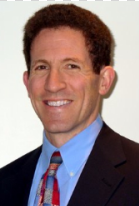 Mike Fischer, MD, MS, NaRCAD Director Tags: Conference, Detailing Visits, Director's Letter, Opioid Safety NaRCAD is thriving, thanks to the engagement and enthusiasm of our network of healthcare professionals working to improve patient outcomes. The best way to become more involved in that network is to join us for our 3rd International Conference on Academic Detailing. This year’s conference will be our most exciting and interactive event to date, with a stimulating 2-day program bringing together thought leaders for expert panels, best practices, breakout tracks, networking, and invigorating group discussions on innovations in the field. Our keynote presentations will provide critical insights for everyone working to improve healthcare quality and patient outcomes. On Monday, Nov. 9th, Dr. Carolyn Clancy, Chief Medical Officer of the Veterans Health Administration, will highlight the VA’s use of academic detailing to address the epidemic of opioid overdose and misuse to save veteran’s lives. On Tuesday, Nov. 10th, Dr. Don Goldmann, Chief Medical and Scientific Officer at the Institute for Healthcare Improvement, will provide his insights on how to engage front-line clinicians in committing to change – drawing on IHI’s years of experience in promoting patient safety. Many questions about academic detailing still need to be explored, new ideas generated, and connections made. We need to foster solution-based discussion from a wide range of voices, representing clinical education, public health, practice transformation, government, the non-profit sector, hospital networks, academic institutions, and others. But the most important ingredient for the success of this event is you. Join us as we work together to discover solutions, connect you with others that can amplify your impact and elevate your work, and share your experiences and insights on the best ways to navigate a rapidly-changing healthcare landscape. We hope you’ll join us this November 9th and 10th, and that you’ll help us spread the news about this unique, transformative event. See you in November! 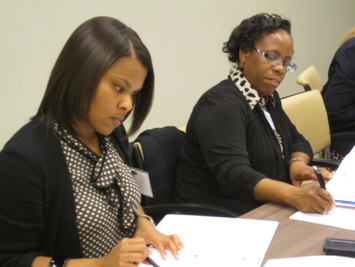 Bevin K. Shagoury, Communications & Ed. Director Tags: Conference, Training The NaRCAD team is heading into October with an afterglow from our latest 2-day training session with a truly dynamic group of outreach educators. Each new group of trainees inspires our team with their plans to use their new skills for innovative clinical education programming. This fall’s training class will pursue a range of goals in their programs, including:
With attendees representing diverse geographic regions such as South Carolina, Norway, Washington State, and beyond, we were rewarded by this group’s eagerness to learn and to share fresh, new ideas on how to make our successful program even stronger. Our program had a few new highlights to share, too—including an engaging presentation on theories of behavior change, led by Arielle Mather, MPH, NaRCAD’s Education & Training Manager. Setting the stage during Day 1 of our program, this foundational presentation reviewed behavior change models and theories that inform the practice of academic detailing, including Motivational Interviewing and the Theory of Planned Behavior. The presentation was met with enthusiasm and appreciation by trainees and facilitators alike, and many trainees requested more time to talk about these theories during breakout sessions. Another new element of our program provided dedicated time on Day 2 for a lively group discussion on personalized support from NaRCAD. Trainees, staff, and facilitators brainstormed as a group the ways that NaRCAD could continue to bolster an active learning community through virtual resources, e-news, sharing of best practices, partner modeling, and 1:1 consultation. As a final new feature of our program, we created time during the personalized support session for more role-play practice. Participants who wanted additional support prior to their final, recorded detailing session had the option to head to a breakout room and receive additional, personalized practice time with an expert facilitator. As we start planning for our Spring 2016 AD Techniques Training program, we have many new ideas to implement, trainee-to-expert introductions to make, and best practices to feature. As NaRCAD enters our 5th year and prepares for our 3rd annual conference, we hope you’ll join our community of experts leading the way to improving health outcomes with engaging, clinical outreach education. 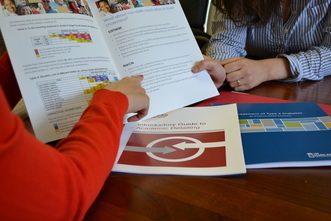 by Arielle Mather, MPH, Education & Training Manager Tags: Conference, International, Jerry Avorn, Opioid Safety On November 13th and 14th, 2014 NaRCAD hosted the Second International Conference on Academic Detailing. The focus of this year’s conference was on educational outreach in an era of rapid health care reform, with perspectives from prominent figures in government, research, and business. The conference explored a pressing clinical theme on each day, including presentations of academic detailing programs currently addressing these topics in the field. After Dr. Jerry Avorn, NaRCAD’s co-director, opened the conference with a review of the past, present, and future of academic detailing, Dr. Joshua Sharfstein, Maryland Secretary of the Department of Health and Mental Hygiene, discussed the challenges of improving health care and outcomes for the residents of his state. Jean Slutsky, Chief Engagement and Dissemination Officer of the Patient-Centered Outcomes Research Institute (PCORI) reviewed the key principles for effectively communicating research results that improve patient health outcomes. The clinical theme for Day 1 was prescription opioid use and overuse. Dr. Harry Chen, Vermont Secretary of the Agency of Human Services set the stage by reviewing the origins of current problems with opioid use and sharing details of his state’s initiatives for prescribing pain medication. This talk was followed by an interactive panel session that highlighted two academic detailing programs (in South Carolina and New Mexico) seeking to reduce opioid overuse and abuse. Small group breakout sessions allowed for more detailed conversation about these programs and other specific topics. Day 2 of the conference began with an overview of the business case for evidence based practice, presented by Dr. Troyen Brennan, Chief Medical Officer of CVS Health. Daniel Wolfson of the American Board of Internal Medicine Foundation, followed with a presentation on the Choosing Wisely campaign, which is designed to engage clinicians in the critical questions of how to make healthcare safer and more efficient. Dr. Alice Bonner of Northeastern University began the conversation of the day 2 clinical theme: antipsychotic medication use in long term care. After Dr. Bonner’s introduction, two ongoing academic detailing programs (in Massachusetts and Saskatchewan, Canada) aimed at addressing this problem shared their insights. The challenge of sustaining academic detailing programs was addressed by Frank May, who has successfully implemented programs in multiple settings internationally. Dr. Madeleine Biondolillo, Associate Commissioner at the Massachusetts Department of Public Health, made the final presentation, reviewing how academic detailing fits in with the other approaches that the state uses to improve health. In addition to the formal sessions, conference attendees from 15 US states, Canada, Europe, and Australia had a chance to interact informally, share ideas about academic detailing, and develop connections that will help support increased collaboration in the future. The third installment of this AHRQ funded conference series will be held next year in November 2015. Finalized dates and registration information will be announced in the coming months. If you would like specific slide sets from any of the conference presentations, please email us. |
Highlighting Best PracticesWe highlight what's working in clinical education through interviews, features, event recaps, and guest blogs, offering clinical educators the chance to share successes and lessons learned from around the country & beyond. Search Archives
|
